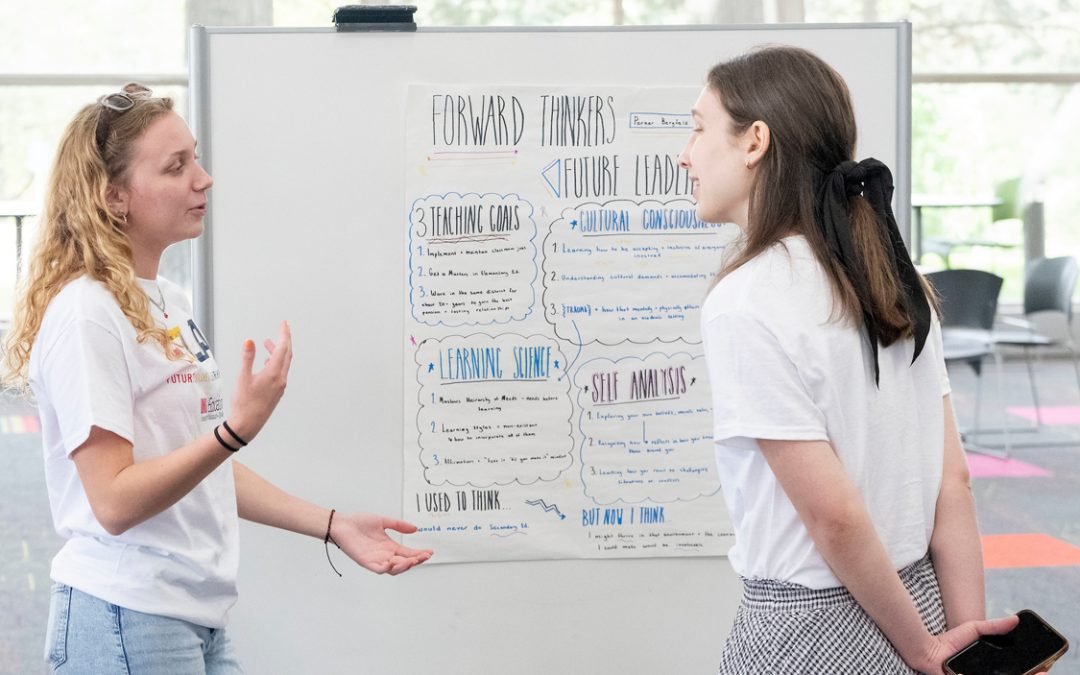They came to talk about food. Not free range vs. cages, or even paying $130 for a bottle of organic limited reserve extra virgin olive oil. Instead, they came to talk about the biology and politics of starvation, food safety, food deserts and local food systems.
“Each year we focus on a different subject and this year we believed food was a very appropriate topic,” said Diane Touliatos, director of the Center for the Humanities at the University of Missouri–St. Louis, sponsor of the annual event. Nearly 200 people attended the two-day conference celebrating its 16th year.
Presenters and participants examined the place of food in cities, using history, public policy, social justice, social science and their personal lives. Dr. John Butterly, associate professor of medicine at Dartmouth Medical School in Lebanon, N.H. , and co-author of the soon to be released book, “Hunger,” brought the first compelling message about the biology and politics of starvation. He explained that hunger is not the result of inadequate resources and technologies, but rather the political will to ensure that all people have access to the food to which they are entitled.
Butterly flew into St. Louis last week directly from Haiti, where he was volunteering his services as a medical doctor to a country still reeling from the devastating January earthquake. He talked of the inability of so many people to fight off disease because of widespread hunger and malnutrition and told conference goers that an epidemic could strike at any time. A day later the specter of a cholera epidemic spreading through Haiti became all too real.
Closer to home, a discussion of food deserts focused on the lack of nutritious foods in the middle of urban as well as rural areas. Food deserts exist where access to nutritious food is limited and where there is disproportionate access to unhealthy food.
Representatives from various organizations within the Normandy School District and Old North St. Louis talked about filling those gaps.
Chris Krehmeyer, president and chief executive officer of Beyond Housing, brought the story of a long-awaited dream: the opening of a Save-A-Lot grocery store in Pagedale, Mo., the first grocery store in the area in 40 years. The Old North St. Louis neighborhood has helped to organize a community garden, farmer’s market and now a food co-op to provide fresh fruits and vegetables to families who did not have that kind of access to nutritious foods.
A discussion on immigrant entrepreneurship and filling urban food deserts across the U.S., also had local connections. P. Rafael Hernandez-Arias, a research fellow at the University of New Mexico in Albuquerque, has written about cities with high concentrations of immigrants.
“The people in those communities often open up their own grocery stores and its residents have access to healthy food close to their homes,” said Karen Lucas, assistant director of the Center for the Humanities. “You can see that here in St. Louis with the Chinese community’s groceries and restaurants along Olive Blvd. in University City, Mo. and the Hispanic groceries and stores along Cherokee Street in St. Louis.”
Lucas said the Food in the City conference had an eclectic audience – who relish the interdisciplinary approach to tackling societal issues. The center is considering following up this year’s popular topic with another year of food. Perhaps Food and Art: Film, Drama, Literature. No decisions have been made yet.
Touliatos pointed out that the conference topic was completely changed in August when Hurricane Katrina hit the Gulf Coast and for days and weeks on end, the entire nation’s attention was riveted on the plight of the people of New Orleans and much of the Gulf Coast.
“We always take an interdisciplinary and humanistic approach to each conference, said Touliatos. “The content brings people to the conference and that year we changed it to “Catastrophies in the City – Katrina and the Chicago fire, one of the largest of disasters in the U.S.”
More information:
http://tiny.cc/w2348














